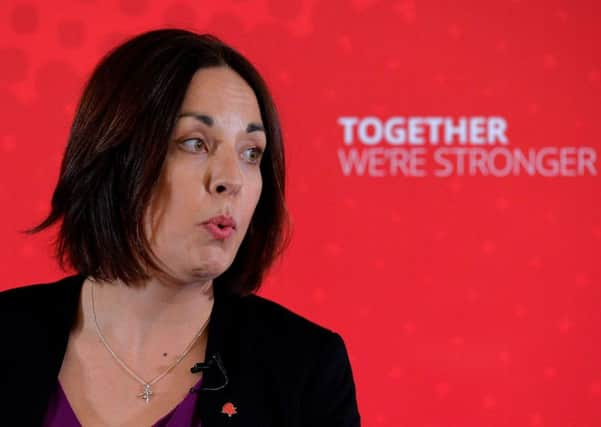Kezia Dugdale’s new political mission is absolutely vital – leader comment


In the eight years since she was first elected as an MSP, Kezia Dugdale became one of Scotland’s brightest political stars.
Within just three years, she was deputy leader of Scottish Labour and after its 2015 general election catastrophe – which saw the party lose 40 Westminster seats and hold just one as the SNP took 56 out of the 59 in Scotland – she was the person to whom the party turned to become its leader.
Advertisement
Hide AdAdvertisement
Hide AdAnd she did manage to steady the ship, overseeing a slight increase in Labour’s share of the vote from the 24 per cent in the 2015 UK general election to 27 per cent in 2017. In a different era, she might have become First Minister.
But, instead, yesterday she announced she planned to resign her Holyrood seat to become director of the John Smith Centre of Public Service at Glasgow University, saying that politics had become “increasingly polarised and emotional” and lamenting the decline in “rational, evidence-based thinking”. “Faith in public service, politics and the political process has to be restored,” she added.
While she said she would work to do that in her new role at the think tank, it is hard not to conclude that her resignation is a sign of her own loss of faith, not perhaps in politics in its broadest sense, but in party politics and, particularly, Labour party politics.
She found herself at odds with the supporters of Jeremy Corbyn, some of whom appear intent on purging the party of its moderates. And when the party decided to drop its financial support during her legal battle over alleged defamation with Wings Over Scotland blogger Stuart Campbell – which she later won with the Daily Record newspaper’s support instead – she described it as one of her “lowest personal moments”.
Scottish Labour leader Richard Leonard said her departure would be a “loss” to the party; Nicola Sturgeon described it as a “big loss”. A nuance of language perhaps, but the Labour MPs who left to form Change UK-The Independent Group demonstrated that some moderates no longer feel welcome or at home within the party.
Politics is a cut-throat business and it is easy to become jaded and cynical. The risk is that this turns to disillusionment with democracy itself. So The Scotsman wishes Dugdale all the best. If she succeeds in her new task, her light may yet burn bright.
